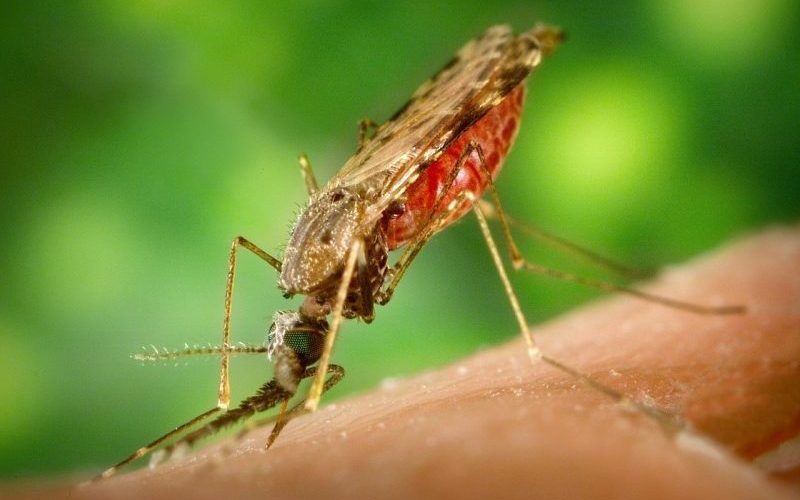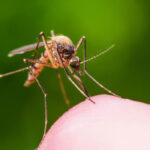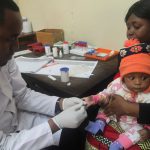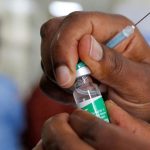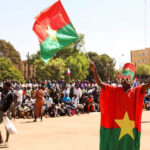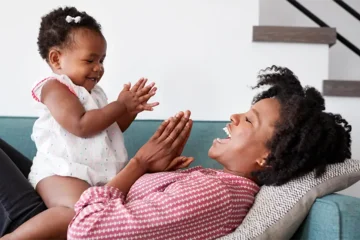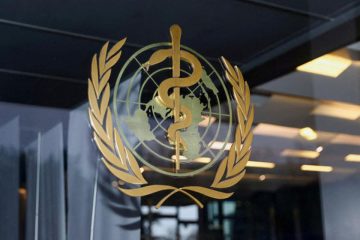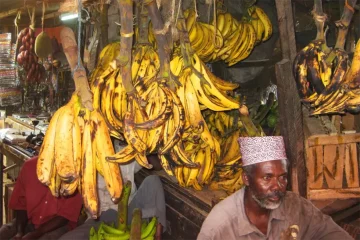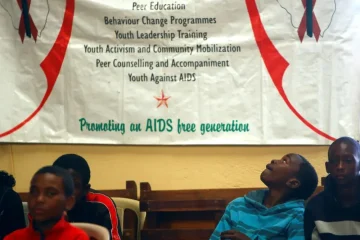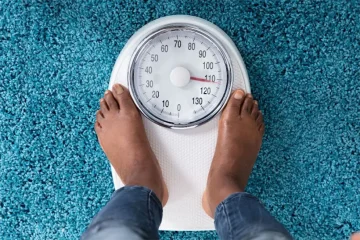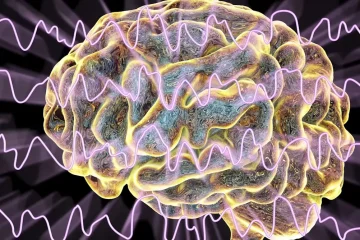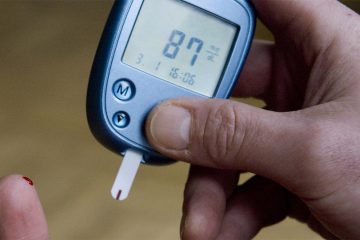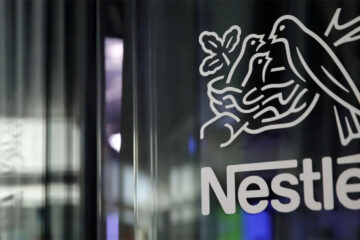SAM MEDNICK
HEALTH worker Estelle Sanon looked on helplessly as a woman tried to make her squirming baby drink a mug of malaria medicine outside their house in Burkina Faso’s capital Ouagadougou.
Normally Sanon would hold the 18-month-old and administer the dose herself, but because of coronavirus, she has to keep a distance from her patients.
“If I am standing and watching the mother do it, it’s as if I’m not doing my work,” said Sanon, a community health volunteer assisting in a seasonal campaign to protect children in the West African country from the deadly mosquito-borne disease.
Burkina Faso is one of the 10 worst malaria-affected nations in the world, accounting for 3% of the estimated 405,000 malaria deaths globally in 2018, according to the World Health Organization (WHO).
More than two-thirds of victims are children under five.
Now there are fears malaria cases could rise in Burkina Faso as restrictions due to coronavirus slow down a mass treatment campaign and rumours over the virus causing parents to hide their children, according to health workers and aid officials.
“COVID-19 has the potential to worsen Burkina Faso’s malaria burden,” said Donald Brooks, head of the U.S. aid group Initiative: Eau, who has worked on several public health campaigns in the country.
“If preventative campaigns can’t be thoroughly carried out and if people are too scared to come to health centres … it could certainly increase the number of severe cases and the risk of poor outcomes,” he told the Thomson Reuters Foundation.
Eliminating malaria by 2030 was one of the global goals agreed by world leaders at the United Nations five years ago, but while it has been eradicated in Europe the number of cases is still rising in Africa, according to the WHO’s latest report.
Earlier this year, the U.N. agency warned that the disruption to malaria prevention programmes caused by the coronavirus could increase the number of deaths to 770,000 across sub-Saharan Africa, twice the figure in 2018.
OBSTACLES
During peak malaria season, from July to November, community health workers deploy across Burkina Faso to treat children with seasonal malaria chemoprevention (SMC), a drug the WHO says is 75% effective at preventing malaria in children under five.
This is the second year the campaign will cover the whole country with more than 50,000 volunteers going door-to-door, said Gauthier Tougri, coordinator for the country’s anti-malaria programme.
Logistics were already challenging. Violence linked to jihadists and local militias has forced more than one million people to flee their homes, shuttered health clinics and made large swathes of land inaccessible.
Now the coronavirus has made the task even harder, health workers said.
“It hinders our work,” said Daniel Sorgho, a volunteer in the remote village of Moaga in the centre-eastern region.
Instead of giving children the medicine directly, volunteers have to stand back and teach parents how to do it, as well as how to measure children’s arms to check for malnutrition.
Children are less likely to swallow the medicine when their parents give it to them, and more children are vomiting this year compared to last, Sorgho said.
As a result, visits are taking three times as long and he’s reaching 30% fewer people a day, he said.
People have also become sceptical about taking the medicine because of the rumours swirling around the coronavirus, said Esther Traore, head nurse of a health clinic in Ouagadougou.
“There are a lot of things that circulate on social media saying that it is not good to vaccinate children, it is not good to take the tablets,” she said.
As a supervisor, she’s made an effort to visit reluctant families and explain that the treatment is safe, she said.
LASTING EFFECTS
It is too soon to measure the impact of coronavirus on malaria numbers, said Johanna Stenstrom, former Burkina Faso country director for the Malaria Consortium, an international aid group.
An analysis on the impact of COVID will be conducted immediately after the prevention campaign, she said.
But Stenstrom warned that the long-term consequences of malaria are severe, including children not being able to go to school, parents missing work to take care of them and the added financial burden on families and communities, she said.
” hits countries harder than we see reported. It has a long list of knock-on effects on the individual kids and those are lasting,” Stenstrom said.
Health experts said the risks of not conducting the campaign would be worse than forging ahead under difficult conditions.
Globally, progress against malaria has stalled in recent years. After falling to 217 million in 2014 from 251 million in 2010, cases rose to 228 million in 2018, according to the WHO.
To increase safety, Burkina Faso’s government and aid organisations have added money to the campaign for coronavirus protective equipment.
The Global Fund to Fight AIDS, Tuberculosis and Malaria, one of the main donors for malaria programmes in the country, invested an additional $1.5 million, said Jean-Thomas Nouboussi, the group’s senior fund portfolio manager for Burkina Faso.
Other major donors include the U.S. government, the World Bank and the Malaria Consortium while health volunteers are putting in extra hours to reach everyone.
“The rate of uncomplicated malaria has fallen a lot,” said Burkina Faso’s Health Minister Leonie Claudine Lougue on a visit to Moaga this month, praising volunteers for establishing trust within communities despite the difficult conditions.
But some villagers remained sceptical.
Moaga resident Virginie Nion said she was reluctant to let her daughter have treatment after seeing comments on Facebook in relation to the coronavirus, warning Africans to be wary of having drugs tested on them.
While Nion, 48, still believes in the malaria treatment, she said some of her neighbours hide their children when health workers come door-to-door.
“A lot of people are more reluctant,” said Nion. “People aren’t open like before.” – Thomson Reuters Foundation.

